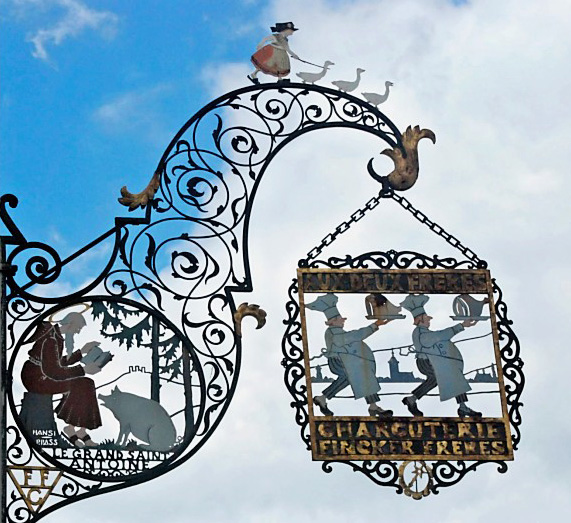|
THE PURSUIT OF WORLDLINESS by Barry Edelson
NEWS FLASH:
|
 St. Antoine and his German friend |
It is understandable that an unquestionably brutal history of invasion and counter-invasion still chafes a bit in some people's minds. But whether these expressions of mutual disregard are mere benign manifestations of national chauvinism, or represent actual fear of a detested enemy, it is difficult to say. If not for the persistence of neo-Nazis in Germany and Austria, some of whom have risen to positions of political prominence, and the perennial electoral success of Jean-Marie Le Pen's xenophobic National Front in France, it would be easy to dismiss these casual comments as trivial nonsense. However, it is not difficult to imagine political and economic circumstances in which demagogues on both side of the now permeable border could stir up just enough passion to cause serious trouble. The leaders of Germany and France may enjoy perpetually friendly relations and together form the backbone of the European Union, but that doesn't oblige the citizens of either nation to have warm feelings towards the citizens of the other.
As Americans and Europeans go to great pains attempting to bridge divides among violently divided peoples, from Northern Ireland to Israel/Palestine to the Korean Peninsula, the Alsatian lesson is a salient and humbling one. As the victors in the war against fascism, we have tended to measure the resolution of all subsequent conflicts against the standards set by that uniquely decisive outcome. But without the occupation of Germany and Japan by armies of unprecedented size, without the Marshall Plan and Bretton Woods to rebuild and normalize the post-war economy, and without the United Nations, NATO and ultimately the Treaty of Rome to bind former enemies into international institutions from which it would be fiendishly difficult to disentangle themselves, the European tranquility that we now take for granted might never have come into being. Patriotism and prejudice were bludgeoned into submission, and cemented over by a great prosperity. And it was no sure thing, especially set against Soviet hegemony over Europe's eastern half. None of the other intractable conflicts of the world have any hope of enjoying such a fortuitous confluence of events to ensure their security and prosperity in a post-conflict environment.
It is surely an exaggeration to suggest that France and Germany are on the verge of their umpteenth war. But no one who has witnessed the nationalist hysteria that infects portions of every nation's body politic from time to time should be surprised, should the unfortunate day ever come, if millions of French and German youth willingly take up arms to defend their countries once again. If this is true of one of the most stable relationships in the civilized world, then we ought not to harbor unrealistic expectations on behalf of any people for whom the very existence of their enemy is ingrained in their cultural identity. Governments can open borders, but they can't make people walk to the other side.
Return to home page • Send an e-mail
All writings on this site are copyrighted by Barry Edelson. Reprinting by permission only.
